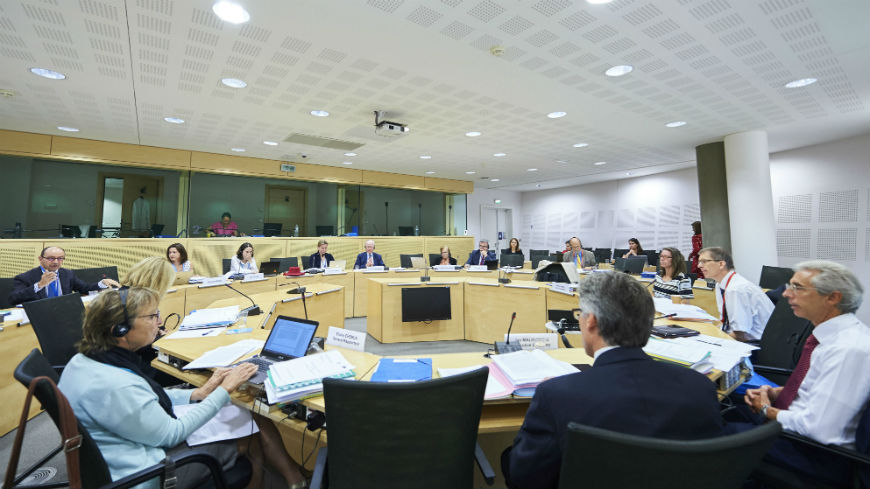The rights established by the Charter are guaranteed in a more or less explicit and detailed manner by EU law. The 98 paragraphs of the Revised Charter can be matched to binding provisions of primary or secondary EU law, albeit with some differences of both form and substance.
In addition to the relevant provisions of the Treaty on European Union (Article 6) and the Treaty on the Functioning of the European Union (particularly, in Article 18, the section concerning individuals' freedom of movement and, above all, that on social policy), most of the rights guaranteed by the Revised Charter are matched by corresponding safeguards in the EU Charter of Fundamental Rights, but with significant exceptions relating to certain articles and paragraphs.
Without being exhaustive, it can be said that in the case of secondary legislation (directives and regulations), the EU lays down requirements in a significant number of fields of specific relevance to social rights.
In this context or the context of other initiatives taken in the field of intergovernmental co-operation, the EU has addressed, to varying extents and in varying detail, a large number of social rights-related issues. It has also looked into issues including work organisation and working conditions, occupational health and safety, co-ordination in social security matters, social dialogue, free movement of workers, social inclusion and the fight against poverty, non-discrimination and the needs of vulnerable people such as people with disabilities and elderly people.
At present the 28 EU member states are part of the "system" of the Charter treaties (the 1961 Charter, the Additional Protocol of 1988, the Additional Protocol of 1995 and the Revised Charter), albeit with differences regarding the commitments they have entered into: nine states are bound by the 1961 Charter (five of which are also bound by the Protocol of 1988) and nineteen by the Revised Charter. With the exception of two states, France and Portugal – which have accepted all the paragraphs of the Revised Charter - the others have ratified a greater or lesser number of provisions of either version of the Charter. Only fourteen EU member states have accepted the 1995 Protocol establishing a system of collective complaints. This results in a variety of situations and contracted obligations.
There is a clear lack of uniformity in the acceptance of Charter provisions by the EU member states. This is the result of the choices made by each State Party when expressing its sovereign will on the basis of the Charter acceptance system described above. In this context, it should be noted that while applying the EU’s binding standards in an area covered by the Charter, some member States of the European Union have not accepted the Charter provisions establishing legally equivalent guarantees.




